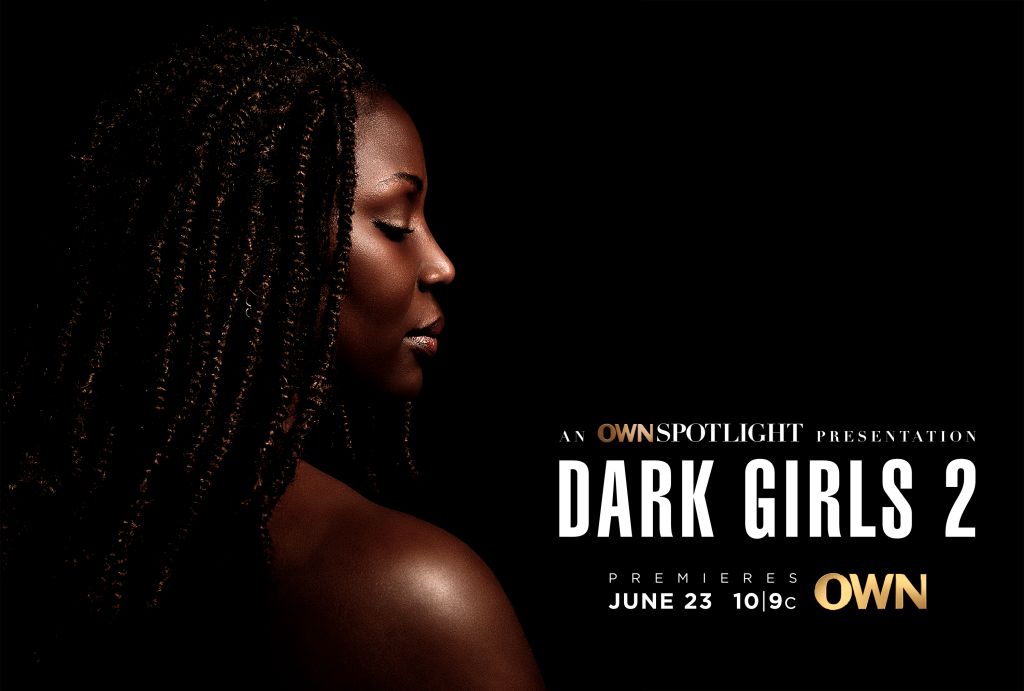Being Black in America is a struggle in itself. To be a dark-skinned woman in America is a beast that only kin-skinned folks can relate to. I’d be lying to you if I said I wasn’t treated differently because of my dark skin. I’ve had to make adjustments to how I represent myself in the world because I quickly learned that anything associated with dark skin meant that I was inferior. I mastered strategies to navigate stores, people and situations as a melanated woman. I overcompensated when it came to my complexion. Whenever I needed to defend myself, I had to keep my composure to avoid the stigma of the angry black woman. I’ve often been assumed to be the help, instead of a regular person out in the world, living her life. Unfortunately, there are plenty of dark-skinned women who can relate.
Producer and director D. Channsin Berry saw the need for healing and growth when it came to colorism in the Black community. In efforts to provide a space where women could educate the world and heal from their experiences with colorism, Berry wrote, directed and produced the second installment of Dark Girls.
You can’t dive into the affects of colorism without tracing it back to its roots. The documentary begins with the origin of Black women – Africa. In the 1500’s, Africans were forcibly removed from their land and taken to America. Slavery became the catalyst to colorism. As Black slaves were being raped by their white slave owners, it created a new class of people that were viewed differently. This birthed the practice of treating light-skinned people more favorably than their darker counterparts. While a mixed slave was still considered to be Black, their lighter skin tone made them more acceptable. Unfortunately this mentality has transferred into modern-day cultures.
What are you mixed with?
Berry takes a deeper look into colorism within the Black culture. He interviews over 100 women who share their stories of feeling less-than because of the negative narrative associated with darker women. Some recall being bullied so badly they had thoughts of suicide, while others discussed their journeys to self-love and acceptance of who they are. Perhaps the most common gripe that the women had was the backhanded compliments like, “You’re pretty for a dark skinned girl.” Among the most shocking was a group of young high school girls who talked about the boys who say, “I won’t date a dark-skinned girl because she’s loud and ratchet.” One young lady retorted, “But your mom is dark-skinned.”
The idea that women with darker skin are loud, ghetto, and angry while women with lighter skin are feisty and exotic is a common ideology both in the Black community and out in society. Black features are found to be less attractive on darker women than they are on lighter women, thus making it harder for women with more melanin to find the beauty in themselves. More recently, we’ve witnessed non-Black women capitalize off of the very features that society deemed ugly and inappropriate for Black women. Now, more pronounced lips, wider hips, tanned skin, and a larger behind has become the prototype among other communities.
We shouldn’t have to hate ourselves because of the color of our skin.
Dark Girls 2 covers all bases when it comes to the complex layers of colorism. Lack of representation in the TV and Film industry continues to perpetuate the stigma of darker women. In most Hollywood films involving a Black cast, the love interest has light skin or is racially ambiguous. If a darker woman is casted for a role, she’s often the louder, background friend with an attitude. Growing up, music videos would feature light skin women as the focal points of the video while dark women would be used to show off their bodies, not their faces. Slowly but surely, things are beginning to shift. Films like Black Panther created a space for dark skin to be celebrated with an all-Black cast. We were able to see ourselves, on film, as the heroes, kings, queens, and creatives that we were born to be. Visual representation of darker women help reinforce our place in the world.
I remember growing up and being told that dark skin girls shouldn’t wear lipstick and shouldn’t wear bright colors.
I’d be lying if I said I wasn’t reduced to tears during the pre-screening of Dark Girls 2. Each woman’s story deeply resonated with me. I’ve never quite hated my skin tone, but I have identified with feeling less-than or less desirable because of my complexion. Two years ago I went to Kenya with two women with lighter skin tones than mine. A gentleman we met along the way said to my travel buddies, “The men here would go crazy for you two.” It was in that moment that I realized I still hadn’t healed from the negative stigma of being a dark-skinned woman.
There is a heavy emphasis on how colorism creates a division in the Black community. There is an equally heavy emphasis on what’s needed for women to heal from these experiences. During a Q&A about the documentary, Berry said, “I want this to be the last film that I do on colorism.” We want to heal so that we can take on the bigger issues in the world. Truth is, healing can’t occur until we confront our history and tear down the ideologies that were fed to us both consciously and subconsciously. For those who have healed from the effects of colorism, Berry encourages them to help their sisters so that it can be a collective effort.
We don’t take care of each other enough. So it is time for us to find our village and our circle of women who are ready to do it differently. Who are ready to stick up for each other. And thats what I think a lot of young girls need in the community today. They need someone to consistently let them know that they’re beautiful.
Berry’s documentary sparks a sense of pride in being a woman with dark skin. This is a film that should be viewed by all black women to forge an understanding amongst each other. It should be viewed so that the younger generation knows that they’re beautiful with no hidden caveats.
You can catch Dark Girls 2 tonight at 10pm on the OWN network.
RELATED STORIES:
‘Dark Girls 2’ Digs Even Deeper To Explore Colorism In The Black Community
‘LHHATL’ Star Spice Checks Co-Star Akbar On Her Colorism Comments
Joseline Hernandez Can Teach A Lesson On Colorism
‘Dark Girls 2’ Reminded Me I’m Still Healing From The Negative Stigmas Attached To Being Dark-Skinned was originally published on hellobeautiful.com
















